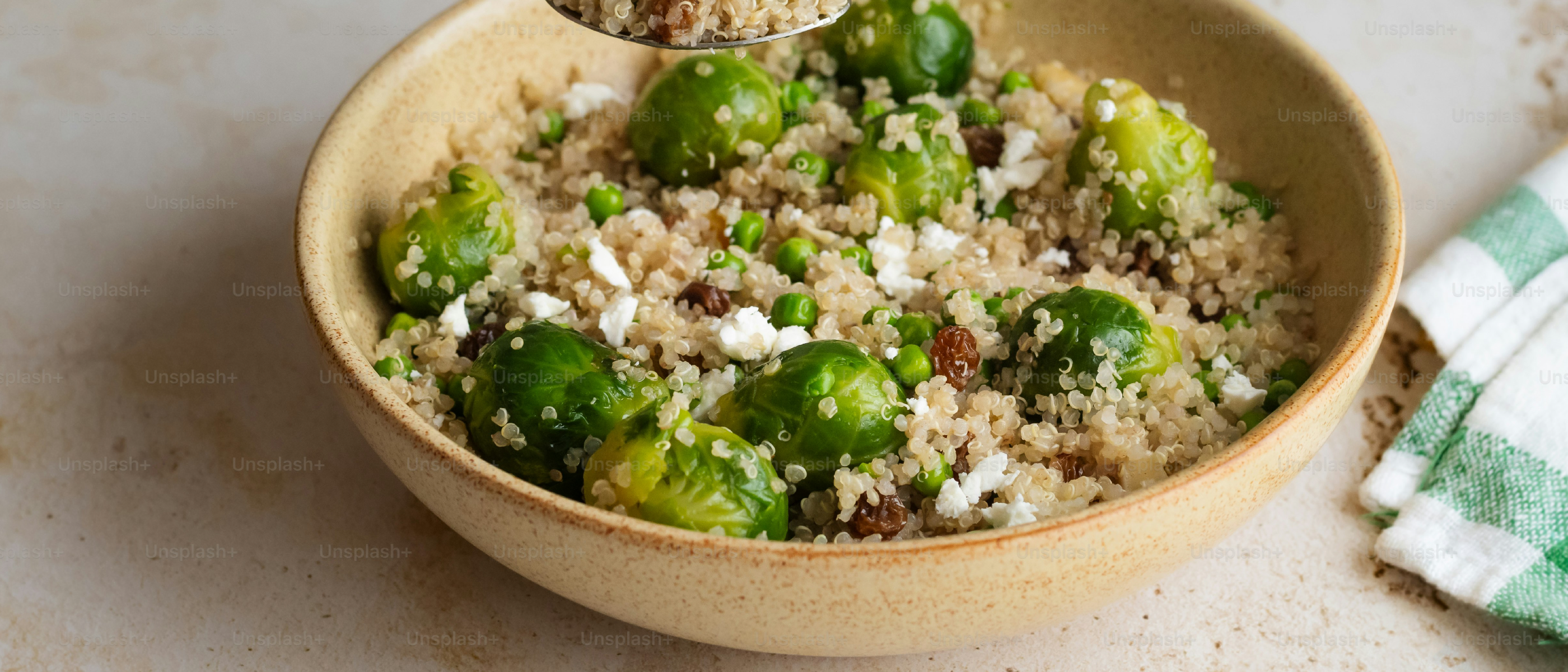What Happens to Your Body When You Eat Quinoa Every Day
Posted on May 23, 2025 • 4 min read • 717 wordsDiscover the daily impacts of quinoa on your body, from digestion to metabolism, inflammation, and cardiovascular health.

You’ve probably heard quinoa hailed as a “superfood” in health circles, but what exactly happens when you make it a daily staple? This ancient Andean grain, technically a pseudocereal, has skyrocketed in popularity for its exceptional nutritional profile—complete protein, high fiber, and a host of antioxidants. But beyond the buzz, how does it interact with your body on a daily basis? From your gut to your blood sugar, let’s walk through the science-backed changes you might experience when quinoa becomes a regular part of your meals.
1. Your Digestive System Gets a Boost
Let’s start with the most immediate impact: digestion. Quinoa is rich in dietary fiber, with about 6.6 grams per 100 grams [1] . For you, this means more than just feeling full longer—fiber acts as a prebiotic, feeding the beneficial bacteria in your gut. Over time, a daily dose of quinoa can help maintain a balanced gut microbiome, which is linked to better nutrient absorption and reduced risk of digestive disorders like constipation [2] .
2. Your Blood Sugar Stabilizes—And So Does Your Energy
If you’re prone to energy crashes, quinoa might become your new best friend. Unlike refined grains, quinoa has a low glycemic index (GI), meaning it releases sugar into your bloodstream slowly. This is partly due to its high fiber content, which slows digestion, and partly to its complex carbohydrates [3] . For you, this translates to steady energy levels throughout the day, avoiding the “sugar high” followed by a crash. Studies even suggest that regular quinoa consumption may improve insulin sensitivity, which is crucial for preventing type 2 diabetes [4] .
3. Inflammation in Your Body May Decrease
Chronic inflammation is a silent driver of many diseases, from arthritis to heart disease. Here’s where quinoa’s antioxidants shine. Compounds like quercetin and kaempferol (flavonoids found in quinoa) have been shown to reduce levels of pro-inflammatory cytokines like TNF-α and IL-6 in animal studies [5] . If you include quinoa daily, you might notice less joint stiffness or faster recovery from workouts—signs that your body’s inflammation levels are under better control.
4. Your Heart Health Gets a Protective Shield
Cardiovascular health is another area where quinoa excels. Its high fiber content helps lower LDL (“bad”) cholesterol by binding to bile acids in your gut, prompting your liver to use more cholesterol to make new bile [6] . Additionally, quinoa is a good source of magnesium, a mineral that supports healthy blood pressure by relaxing blood vessel walls. Over time, these effects could reduce your risk of heart disease, a leading cause of death worldwide.
5. Your Protein Intake Gets a Quality Upgrade
For vegetarians, vegans, or anyone looking to reduce meat consumption, quinoa is a game-changer. It’s one of the few plant foods that provide all nine essential amino acids, making it a “complete protein”—unlike most grains, which lack lysine [7] . If you eat quinoa daily, you’re not just getting more protein—you’re getting high-quality protein that supports muscle repair, immune function, and hormone production.
Quinoa’s Nutrient Profile: What You’re Actually Consuming
To put it all into perspective, here’s a breakdown of quinoa’s key nutrients per 100 grams, along with daily recommended intakes for adults:
| Nutrient | Amount per 100g | Daily Recommended Intake (Adults) |
|---|---|---|
| Protein | 12.7g | 50-60g (varies by activity level) |
| Dietary Fiber | 6.6g | 25-30g |
| Total Fat | 5.0g | 44-77g (20-35% of calories) |
| Carbohydrates | 58.5g | 130g (minimum for brain function) |
| Calories | 343kcal | 2000-2500kcal (varies by gender/activity) |
As you can see, a single serving of quinoa contributes significantly to your daily fiber needs and provides a substantial protein boost—especially valuable if you’re cutting back on animal products.
Conclusion: Quinoa as a Daily Staple—A Smart Choice for Your Body
Incorporating quinoa into your daily diet isn’t just a trend—it’s a science-backed choice that can positively impact multiple systems in your body. From stabilizing your blood sugar to reducing inflammation and supporting heart health, the changes are both immediate and long-term. Of course, balance is key: while quinoa offers numerous benefits, it’s best paired with a diverse range of fruits, vegetables, and other whole foods to ensure you’re getting all the nutrients your body needs. So go ahead—swap out that rice or pasta for quinoa tonight, and let your body thank you tomorrow, next week, and for years to come.
Sources
-
Nandan, Alisha. Nutritional and functional perspectives of pseudocereals. Food Chemistry 420:139072.(2024). doi:10.1016/j.foodchem.2024.139072 ↩︎
-
Lan, Yongli. Recent advances in physiochemical changes, nutritional value, bioactivities, and food applications of germinated quinoa: A comprehensive review. Food Chemistry 410:136390.(2023). doi:10.1016/j.foodchem.2023.136390 ↩︎
-
Guo, Huimin. Exploration on bioactive properties of quinoa protein hydrolysate and peptides: a review. Critical Reviews in Food Science and Nutrition 63:2302-2315.(2023). doi:10.1080/10408398.2021.1982860 ↩︎
-
Ren, Guixing. Nutrient composition, functional activity and industrial applications of quinoa (Chenopodium quinoa Willd.). Food Chemistry 382:135290.(2023). doi:10.1016/j.foodchem.2022.135290 ↩︎
-
Mahdavi, Aida Malek. Effects of Quinoa (Chenopodium quinoa) on inflammatory mediators: a systematic review of preclinical studies. Inflammation Research 72:123-132.(2023). doi:10.1007/s10787-022-01091-y ↩︎
-
Shahbaz, Muhammad. The nutraceutical properties and health benefits of pseudocereals: a comprehensive treatise. Critical Reviews in Food Science and Nutrition 63:1952-1971.(2023). doi:10.1080/10408398.2022.2071205 ↩︎
-
Hussain, M Iftikhar. Botany, Nutritional Value, Phytochemical Composition and Biological Activities of Quinoa. Plants 10:2258.(2021). doi:10.3390/plants10112258 ↩︎